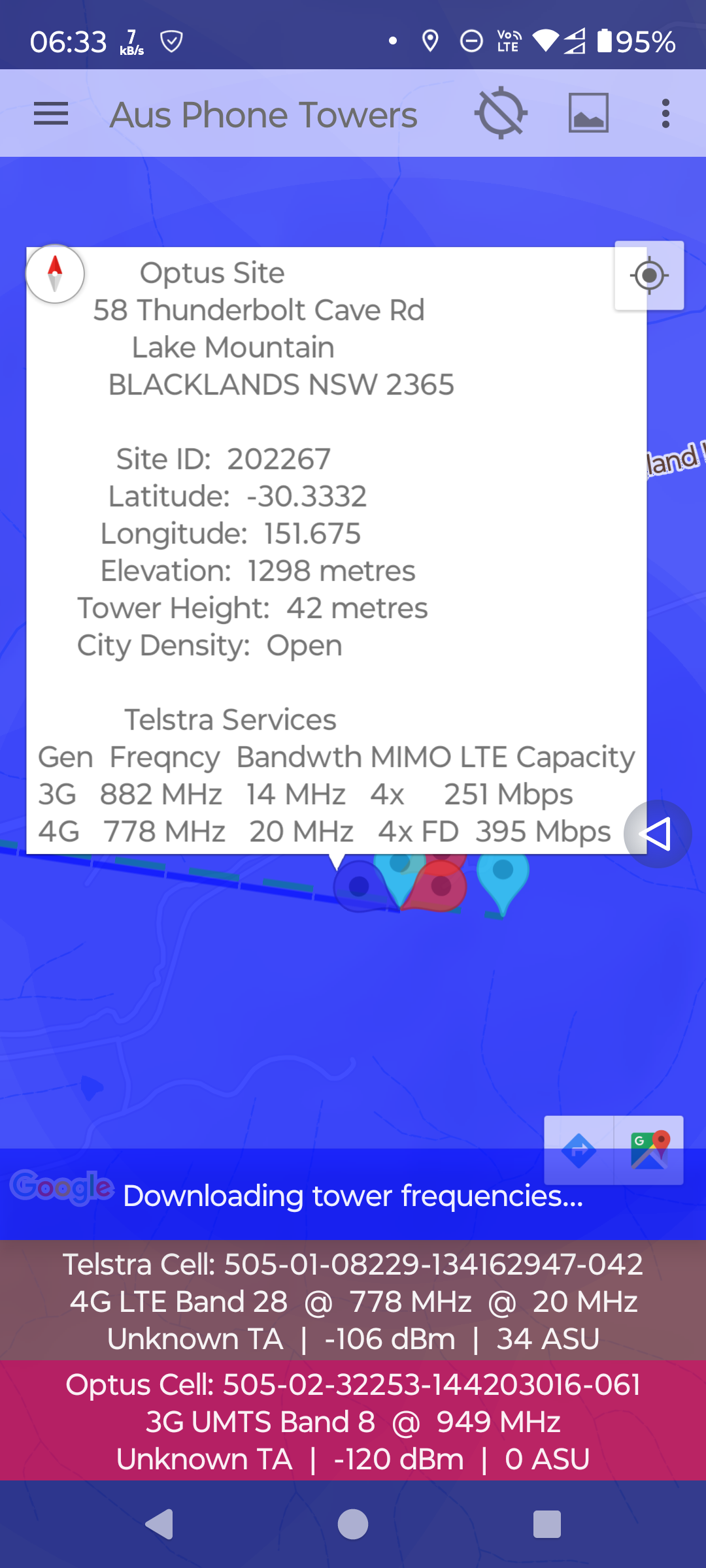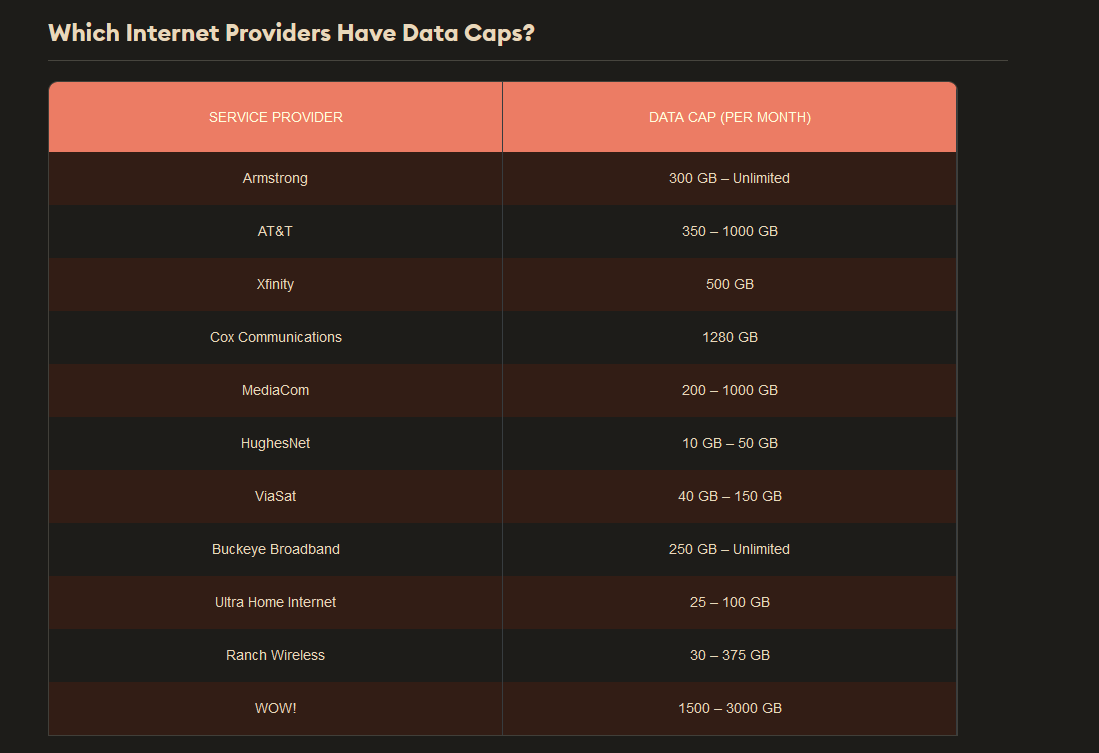Why do cell phones have a data limit but home internet doesn’t? I understand bandwidth limits, but how can home internet get away with giving users all the data they can use, but cell phone providers can’t?
cell phone providers can, they just won’t (would eat into their profits)
and most of the home internet sold as “unlimited” was a scam – if you started to get too close to some hidden value, they would start throttling your connection
'Member when Comcast was caught illegally using Sandvine in around 2006/2007 to illegally throttle or block BitTorrent traffic?
Pepperidge Farm Remembers.
More recently, they throttled Netflix until they could extort them to pay for the traffic being used by their own customers, who were already paying Comcast for the very same data usage.
What a bunch of arseholes
Hm interesting, I’ve never run into issues with hidden throttling.
How would you know if it’s hidden?
Because I get my full speed
I wonder what that is? I’ve gone trough 300TB a month at one point
In the past it was due to technical constraints.
Now it’s just greed.
Not all home internet is unlimited. In many US rural areas, home internet connections have a monthly cap just like mobile networks do. A higher cap costs more, if it’s available at all.
In many US rural areas, home internet connections have a monthly cap
And suburban, and urban. I’ve never lived anywhere that didn’t have a cap.
And not all cell service is limited. I switched from cable to 5G fixed wireless, because I was tired of having a data cap. It’s faster and cheaper too.
Umm, my home internet has a 50GB per month limit. Can’t complain much though, it’s cheap at literally $1 a day, and I’m not a gamer or online streamer.
50GB a month though?? You don’t use any video streaming services at all? What do you use for media?
I do browse through YT videos, but I don’t bother watching full length movies. Honestly, I’ve lost interest in watching newer movies, seems like a waste of time to me. However, I do enjoy educational and scientific content.
Wow I go through 50GB in less than a day. Sometimes an hour.
That’s more than $1.50 per Gigabyte.
When you download a game from Steam, most games you literally pay more for the data than for the game.
Even when you pirate, you pay like $15 for a BluRay quality movieYou’d be dumbfounded to see what I’ve been able to accomplish using my connection. Terabytes of games archived, I just didn’t have to download nor upload them myself.
How is 1€/day cheap for such limited home Internet? I guess it might depend on where you are, but unless you are in the middle of nowhere that seems expensive.
Here in Germany for example, which really isn’t known for its cheap internet, I can find options that offer 100Mbit Flatrates for 20€/month.
My German friends and family don’t believe me when I tell them how expensive internet and phone is in the US. They all think it’s expensive in Germany. Having said that, there are some big differences in take home pay.
I ain’t even talking about the internet speed, I’m talking about the data cap. And $1 a day is about as cheap as it gets in my area.
as cheap as it gets in my area
That’s not a very good approach to assess prices
$50/mo for internet is a relatively low rate for the US unless you’re lucky enough to live in one of the few places with municipal internet.
For ~$30 a month, that’s a complete and utter rip-off.
Even here in Neuland Germany you get at least decent internet with no caps for that price.
Where even has that sort of plan anymore? Are you really rural American?
Guess so. The installation tech had to test like 18 sets of dead phone lines before managing to find one live pair to even connect the internet.
Good thing, because some games would take up all of that just to download and install.
Found the American. In France that would be a huge ripoff compared to what the other providers have to offer. Like, literally any VDSL offer is around 30€/month (or under) and no caps
Of course you can complain, I pay less than half what you do for unlimited cellular data.
My home Internet charges extra when I use more than 1 TB per month. Not sure but I think it’s metered both up and down.
I remember Comcast suddenly started enforcing a limit of about 1 TB some years ago when I had them. Realized it happened when I renewed my contract to get a lower price again for a promotional period. Apparently I agreed to a new contract or something that included the new limit. >:|
FCC is looking into that, I think it was during Trump’s administration
I currently have that cap and wondering how I will be able to play MSFS2024 under these conditions. Absolute trash they get to enforce this.
Had the same thought, and a rep already told me I’m 200gb away. Let’s hope some of the stuff is cached.
Just try to pnpy so flights at 30k ft or above so you don’t have to load ground textures lol
Yep sounds familiar 😅
damn, I share almost a TB/day.
Hopefully only Linux ISOs /s
Nintendo roms
Wow.
How many nintendo roms are there?
switch roms range from 6-20GB each. plus SNES, full collection about 5gb.
Ah yes, switch games are not tiny small cartridges.
Gotta finish my “arcade” box-stick-raspberry one day …
5GB you say? That’s so incredibly cool actually.

For cell / mobile phones, you’re sharing the capacity of the cell among multiple people.
In this example, a rural cell tower can provide up to 395Mbps.
It would only take 40 people watching Kayo at high definition (or any high definition video service) via their phone or a 4G router to saturate this tower.
For everyone else at this time, it’ll still work but even though they might have a strong radio signal (lots of bars), the internet will become slow.
Limiting monthly usage, or charging more for more data per month, reduces the risk of saturation.
There aren’t going to be 40 people using that tower if it’s truly a rural tower. If it isn’t a rural tower then they can update it to handle more throughput. The issue isn’t the towers, it’s the companies wanting to keep using old tech to squeeze out as much profit as possible.
Both of you can be correct. The policy is prevalent to squeeze money out of consumers. However, it’s also easy to imagine more than 40 people in a rural area using their phones for media purposes during PM times in 2024. There’s less to do, internet availability might not exist for some or all residents, and people use their phone for everything now. Casting from a phone is a larger percent of viewing TV now.
In a rural area the population density is a lot less than that of suburbs or the city. We’re talking about 40 people or less using a single tower, this also takes in account of the 3 carriers. If each carriers tower can handle 40 people, that’s potentially 120 users total in a few mile radius, which is normal for rural populations.
This tower has about a 20km radius on average due to topography, covers a stretch of the New England Highway and also covers the nearby village of Black Mountain. A good few hundred phones will be in range I expect.
The tower also has cells for Optus and Vodafone, but they are a significant minority of customers in this area.
This sounds like an issue with the carriers not actually putting in more towers to properly handle the load though. Aka greed.
In theory at least it’s because you pay for a specific bandwidth for home internet (the size of the pipe) but a specific amount of data for cellular (how much stuff you can get through a fixed sized pipe).
Home internet is a little unique in that way, almost all other utilities are consumption based with no real tiers in terms of how it’s delivered (you pay for the volume of water or gas you use, electricity is the same, just different units).
Networking equipment gets more expensive based on the bandwidth it supports, but it doesn’t much care how many bits you push through it. So ISPs charge based on their capacity to deliver those bits, and provide tiers at different price points. Cellular though is much more bandwidth constrained due to the technologies (and it used to be much more so before LTE and 5G), so it didn’t makes sense to charge you for slow or slower tiers. Instead the limiting factor is the capacity of a tower so by limiting data to small amounts it naturally discourages use. That model carried forward even now that the technologies support broadband speeds in some cases. As such and ISP could provide the biggest pipe (highest speed) to all homes and just charge based on consumption (they used to in the days of dial up, and satellite before starlink always has). Many ISPs instead are now double dipping though and charging for both.
Home Internet usually doesn’t have unlimited internet. There’s usually caps baked in somewhere. Don’t believe me? Read the fine print. At some point, at some bandwidth usage in the monthly cycle, they will throttle the living crap out of your connection. It’s written into pretty much every contract I’ve ever signed, and I’ve been with over a dozen carriers of landline internet over the years.
The reason being that they don’t want you serving websites or business class functionality with residential level internet. They didn’t build their network with those constraints. They want you paying for and using the business internet package, which has dedicated bandwidth and no caps because you’re paying for a dedicated line to be run.
For mobile phones? Old pricing models still trying to be relevant. There’s no technical reason.
Home internet has unlimited internet
It’s not 2002
Well, maybe not in that…one… country
There’s “hard” caps, and there’s “soft” caps. When you hit the soft caps with many of these ISP’s, they start throttling your internet usage by a substantial amount.
Relevant Screenshot of caps as of Sept 2024.

I said “home internet hasn’t had data caps for a couple of decades, well except maybe in that one country where people have no consumer rights and everyone gets fucked up the arse for money just for existing”. I’m paraphrasing here.
You said - “Oh yeah, let me prove you right!”
I’m not sure where you’re going with this
Ok, I missed the sarcasm and allusion to the US as the country you were talking about. That’s fair.
I assumed the OP was asking the question for the US. Which of course, is the thing people in my country do. Assume everything is about us ;)
Weird how 97% of people don’t think that eh? 😂
Closer to 96/95% now ;) But yeah, your point stands. What’s even worse about this, is I’m working on a dual citizenship with Portugal, so I should have had more self-awareness than I showed ;)
Good luck! Everyone deserves unlimited internet and consumer rights!
I can only speak from a UK perspective, but most home ADSL/VDSL/Fibre providers don’t have limits, other than “if your usage is tanking the network, we’ll ask you to knock it off” type clauses.
Most providers are also signed up to an agreement that if your speed drops 50% below the agreed speed on the package on average, they’ll either give you refunds, or let you out of the contract.
The only ones that throttle are the bargain basement operators aimed at people who don’t care, and one otherwise very competent provider that for some unexplainable reason only gives 1TB by default, charging an extra £10 for 10TB.
And I guess there is also a pricing step up to guaranteed bandwidth. For business use, they tend to be things like 1gbits headline, 500mbit guaranteed burst, 100mbit guaranteed sustained.
I am in the US and I do not have a hard cap, and I regularly go WELL above the soft cap listed for my ISP in that image with no throttling.
I’ve read the contract of my internet provider. No limit
Then again, I don’t live in the US
Same, no limit. Not American.
deleted by creator
money.
data caps are coming to home internet soon too and with inescapable hidden contracts; switch to an independent isp to avoid it before you’re entrapped into one.
Ah yes I’ll just pick from one of the many ISPs in my area
they exist and they usually suck compared to something like comcast or at&t; but they’re much better than a $500 internet bill because you went over your limit or paying considerably more for breaking the contract that you didn’t know you signed when you didn’t read the fine print.
In a lot of places in the US there is only one home service provider.
i’m aware and fwiw; that’s where it’ll be implemented last since the people there are the biggest and best chance at pushing back against this successfully.
AT&T asks the same question. They provide the bold option to pay more than the competition and get data limits on your home internet.
I went over my home data cap a couple times. The ISP rep was not amused when I called to have them bump my speed down to the lowest tier and add unlimited data. I pay less now and the speed difference is not noticeable for me with daily usage. I told them I was going to download random crap all day, delete, and redownload out of spite lol.
Caps are fake there’s no need for them besides to build golden marble pillars outside CEOs mega mansions.
Lots of home internet does have a data cap, but you might not realize it. Typically what will happen is that, once you hit your cap, you’ll be rate throttled. That throttle might not affect most video streaming since Netflix is really good at video compression, but you’ll see the hit if you are, for instance, downloading large games from PSN, Steam, etc.
You might want to ask Ajit Pai.
Fuck a shit pie.
(Also, whatever you do, never Google that phrase.)
I mean, wasn’t gonna.
I’d have to look at Ajit Pai.












